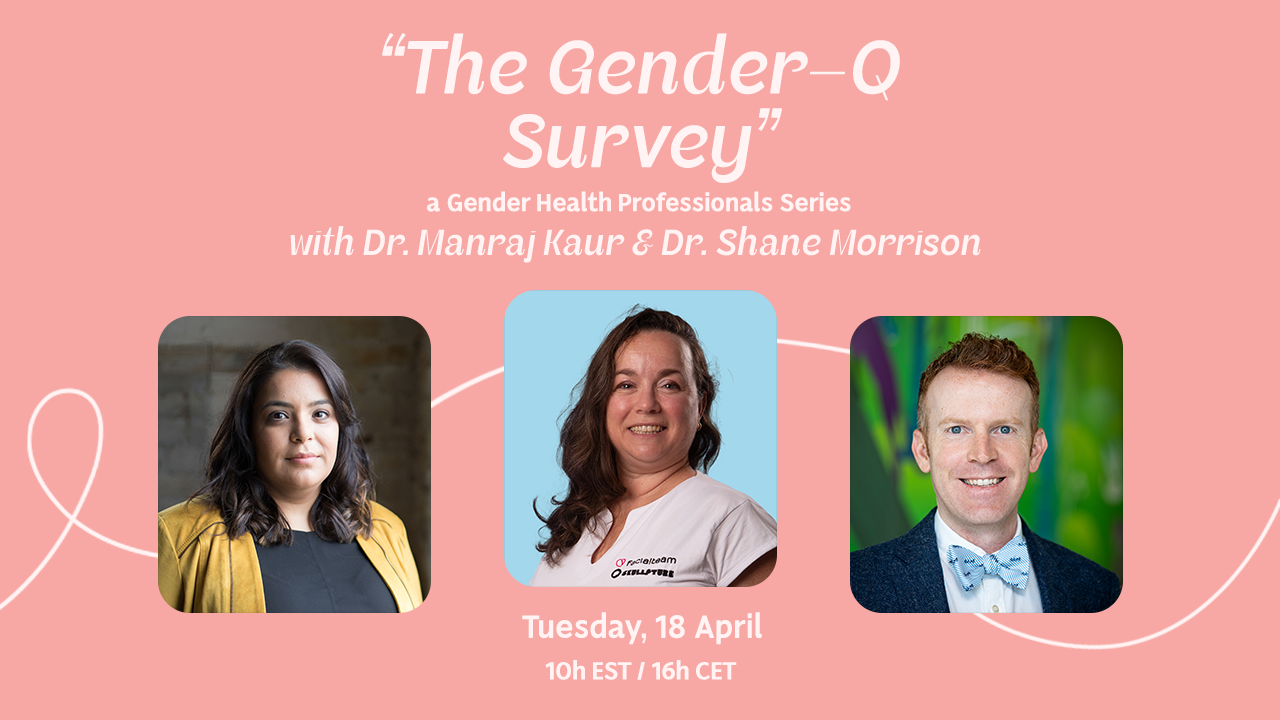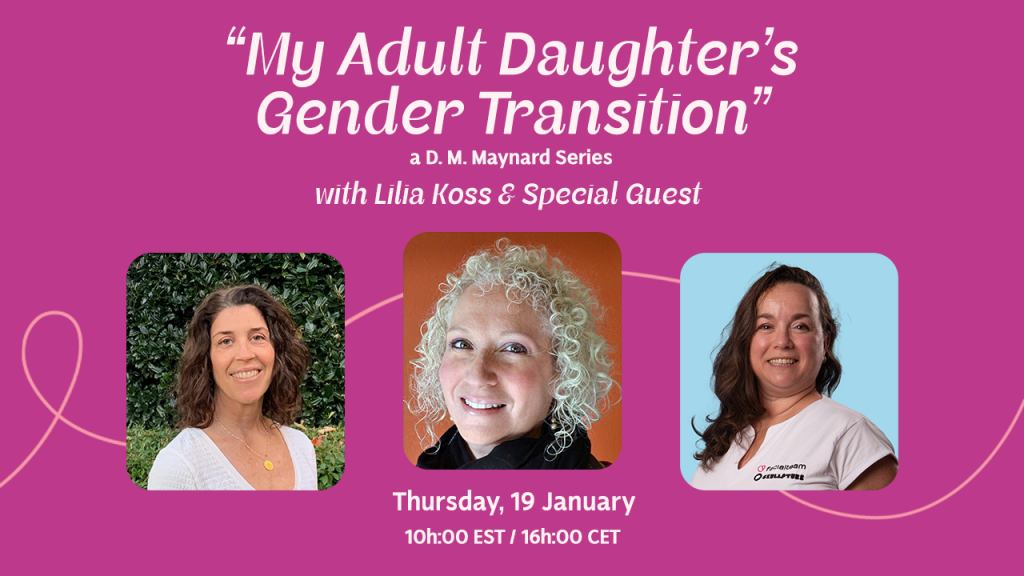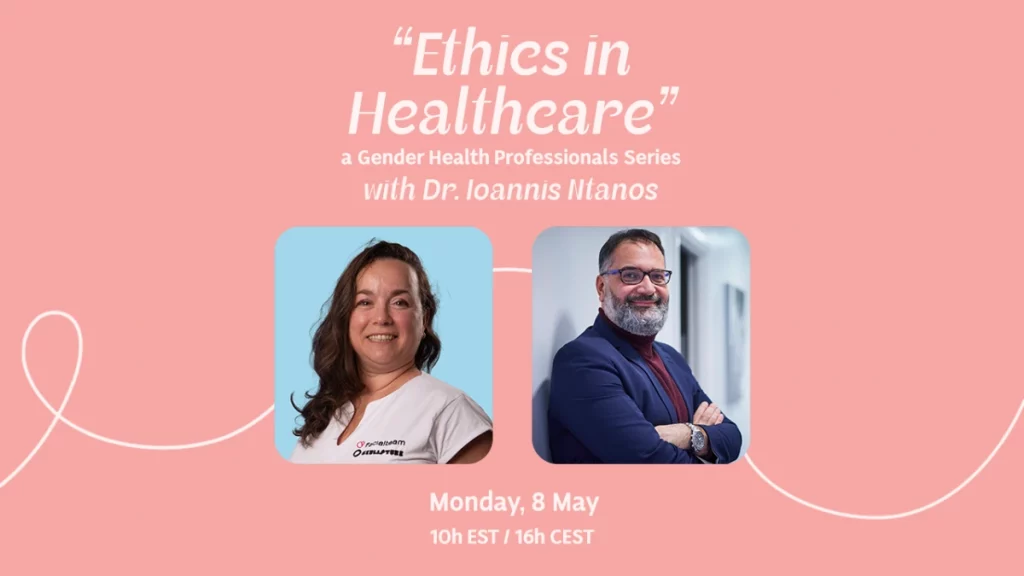The Gender-Q Survey with Dr. Manraj Kaur & Dr. Shane Morrison

Recently I had the privilege of hosting an enlightening discussion with Dr. Manraj Kaur and Dr. Shane Morrison about a novel tool that’s set to transform gender-affirming care – the Gender-Q survey. Here’s a deeper look into our conversation and the key takeaways.
A Deep Dive into the Gender-Q Survey
In our conversation, we delved into the heart of the Gender-Q survey, a patient-reported outcome measure that has been meticulously developed over several years. The survey involves input from the gender diverse community, clinical experts, and research professionals, making it a comprehensive tool that truly captures the concerns of those seeking gender-affirming care. I’m proud to share that Facial Team has also played a part in this process.
The making of the Gender-Q survey demanded careful attention to ensure its relevance and objectivity. We discussed how the team used sensitive language, included content warnings, and tailored the questions to each individual’s experience. As part of its accessibility, the survey has also been translated into five languages.
The Core Concepts Measured by Gender-Q
During our talk, Dr. Kaur and Dr. Morrison outlined the four critical areas the Gender-Q survey measures: appearance, health-related quality of life, experience of care, and devices. With 53 scales measuring these concepts, it’s a flexible tool that can accommodate new procedures or treatments in the future.
The interview shed light on the collaborative spirit driving the Gender-Q project. Backed by the Canadian Institute of Health Research and the Plastic Surgery Foundation, the survey is a joint effort involving clinicians, researchers, and patients. With Dr. Anne Klassen and Dr. Andrea Pusic at the helm, the project seeks to generate valuable insights for both clinical practice and the broader community.
Why the Gender-Q Data matters
We discussed how the Gender-Q survey data could be used to individualize patient experiences, compare outcomes across institutions, and inform policy-making. It also plays a crucial role in setting expectations, determining recovery patterns, and supporting advocacy efforts.
Dr. Fermín Capitán, the researcher involved on behalf of Facialteam, gives insight into why Gender-Q is so important: “To date the comparison of studies related to facial gender is not possible because each one use non-validated scales. Thanks to Gender-Q we will have a universal and standardized outcome measurement tool.“
Towards the end of our discussion, we touched upon the future plans for the Gender-Q project. The team is working on finalizing the survey by late summer/early fall this year, with the aim to make it available for free for clinical researchers and not-for-profit use. They are also actively seeking collaborations for translations and setting up the Gender-Q administration.
We have no doubt about the potential of the Gender-Q survey to contribute to the understanding and improvement of gender-affirming care. As a community, we eagerly await its full deployment and the insights it will bring. Stay tuned as we continue to track this groundbreaking initiative!
If you are a person questioning gender or with a trans history, please consider completing the Gender-Q Survey today!
About the guests:
Dr. Manraj Kaur (she/her/hers), a co-developer of the GENDER-Q, is a Canadian Institutes of Health Research (CIHR) funded Postdoctoral Fellow at the Department of Surgery, Brigham and Women’s Hospital and Harvard Medical School with training and experience in qualitative, quantitative, and mixed methods research, including modern psychometric analysis. Over the past 10 years, Dr. Kaur’s main research interests have focused on the measurement of patient-reported outcomes, preference elicitation techniques, and health economic evaluation, primarily in people seeking oncologic or aesthetic reconstructive surgery.
Dr. Shane Morrison (he/him) is a plastic and reconstructive surgeon with specialized training in gender affirmation surgery. He studied medicine at Stanford University where he was a Howard Hughes Medical Institute Research Fellow, Boren Fellow to Kosovo, and Fulbright Fellow to Switzerland, including further specialized training in gender affirmation surgery at the University of Michigan and Ghent University Hospital in Belgium. His research interests are in surgical and patient-reported outcomes in gender-affirming surgery and has been part of the Gender-Q team for many years.



